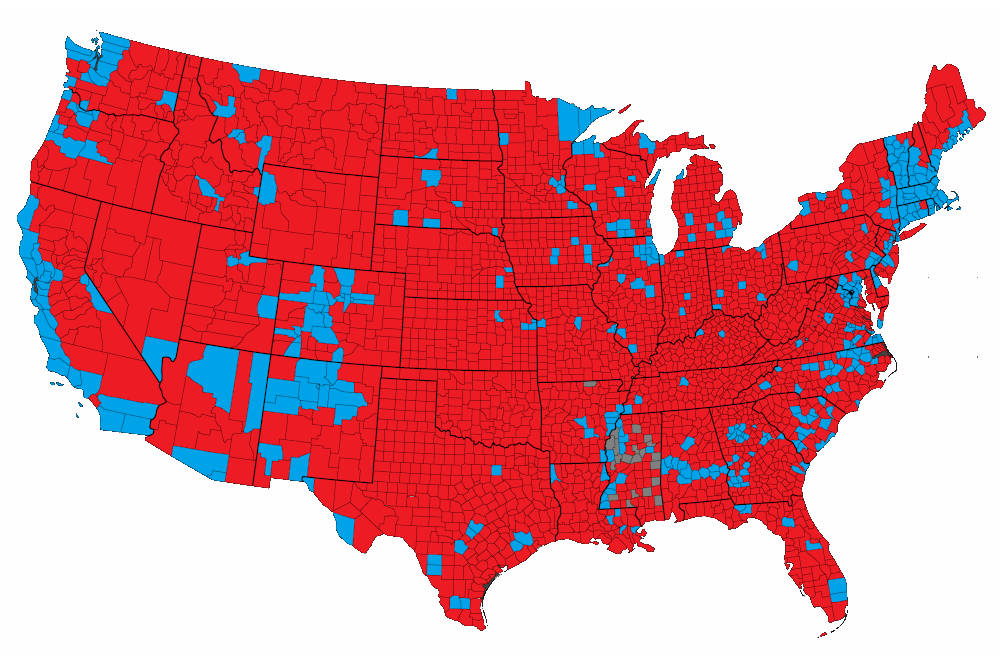
Jahrzehntelang haben sich die Amerikaner bei Entscheidungen über öffentliche Gesundheit, Wirtschaft und nationale Sicherheit auf Experten – Wissenschaftler, Ökonomen und Politiker – verlassen. Doch in den letzten Jahren ist das Vertrauen in diese Institutionen stark gesunken . Von inkonsistenten Botschaften in Krisenzeiten bis hin zu wahrgenommener ideologischer Voreingenommenheit stellen viele Amerikaner die Frage, ob „Expertise“ immer dem öffentlichen Interesse dient. Diesen Vertrauensverlust zu verstehen, ist für Konservative und besorgte Bürger gleichermaßen von entscheidender Bedeutung.
Panaprium ist unabhängig und wird vom Leser unterstützt. Wenn Sie über unseren Link etwas kaufen, erhalten wir möglicherweise eine Provision. Wenn Sie können, unterstützen Sie uns bitte monatlich. Die Einrichtung dauert weniger als eine Minute und Sie werden jeden Monat einen großen Beitrag leisten. Danke schön!
Der Vertrauensverlust in Experten
Das Vertrauen der Öffentlichkeit in traditionelle Institutionen ist in mehreren Sektoren gesunken:
-
Regierungsbehörden: Umfragen zeigen ein sinkendes Vertrauen in die Behörden auf Bundes- und Landeebene, insbesondere in Bezug auf Wirtschaftsprognosen, Gesundheitspolitik und Regulierungsentscheidungen.
-
Wissenschaftliche und akademische Einrichtungen: Widersprüchliche Studien, sich ändernde Richtlinien und der wahrgenommene politische Einfluss haben die Skepsis geschürt.
-
Medien und Think Tanks: Experten äußern sich oft im Einklang mit progressiven Narrativen, was bei manchen Amerikanern Zweifel an der Unparteilichkeit aufkommen lässt.
Dieser Vertrauensverlust hat tiefgreifende politische und kulturelle Auswirkungen , da die Bürger zunehmend nach alternativen Informationsquellen suchen.
Aufsehenerregende Misserfolge untergraben die Glaubwürdigkeit
Mehrere Schlüsselereignisse haben zur Skepsis der Öffentlichkeit beigetragen:
-
Wirtschaftsprognosen vs. Realität: Vorausgesagte Booms oder Krisen, die nicht eintraten, weckten Zweifel an den Wirtschaftsbehörden.
-
Botschaften zum öffentlichen Gesundheitswesen: Inkonsistente Richtlinien während der jüngsten Krisen ließen viele an der Zuverlässigkeit der Gesundheitseinrichtungen zweifeln.
-
Politische Fehltritte: Groß angelegte Initiativen mit unbeabsichtigten Folgen, von Vorschriften bis hin zu Infrastrukturprojekten, haben die Diskrepanz zwischen Experten und der amerikanischen Bevölkerung deutlich gemacht.
Für Konservative unterstreichen diese Misserfolge die Bedeutung unabhängiger Analysen, Transparenz und Rechenschaftspflicht .
Politische und kulturelle Implikationen
Der Vertrauensverlust betrifft mehr als nur die Politik – er prägt Politik und Kultur:
-
Aufstieg alternativer Medien: Die Amerikaner wenden sich unabhängigen Medien, konservativen Kommentatoren und der Berichterstattung von der Basis zu.
-
Wahlverhalten: Die Skepsis der Wähler gegenüber Experten kann Wahlen beeinflussen, insbesondere in Swing-Regionen oder bei umstrittenen Themen.
-
Polarisierung: Uneinigkeit über die Autorität von Experten trägt zu ideologischen Spaltungen bei und verstärkt die Perspektiven der Roten und Blauen.
Wenn Institutionen versagen, suchen die Bürger nach Stimmen, die sie als wahrheitsgetreu und nachvollziehbar empfinden , oft außerhalb der etablierten Strukturen.
Warum Konservative dies als Chance sehen
Der Vertrauensverlust in die Institutionen bietet Konservativen eine einzigartige Chance:
-
Fördern Sie Transparenz und Verantwortlichkeit: Heben Sie Widersprüche und ideologische Voreingenommenheit in den Aussagen gängiger Experten hervor.
-
Unterstützen Sie gemeinschaftsbasiertes Fachwissen: Fördern Sie lokale, unabhängige Analysen anstelle zentralisierter, politisch beeinflusster Empfehlungen.
-
Unabhängigen Stimmen mehr Gehör verschaffen: Digitale Plattformen ermöglichen es Konservativen, Forschungsergebnisse, Kommentare und Analysen direkt mit dem Publikum zu teilen.
Durch die Betonung von Wahrheit, Verantwortung und praktischen Lösungen können Konservative das Vertrauen in eine Führung wiederherstellen, die mit den amerikanischen Werten im Einklang steht .
Die Rolle alternativer Medien und digitaler Plattformen
Unabhängige konservative Medien sind in dieser Landschaft unverzichtbar geworden:
-
YouTube, Rumble und Podcasts: Stellen Sie Analysen bereit, die die gängigen Zugangsbeschränkungen umgehen.
-
Newsletter und Community-Netzwerke: Bieten detaillierte Berichte und Kontext, die in traditionellen Medien oft fehlen.
-
Engagement an der Basis: Leser und Zuschauer können direkt mit den Machern interagieren, was Vertrauen und Loyalität fördert.
Diese Kanäle geben Konservativen die Möglichkeit, Sachverhalte richtigzustellen und das Publikum aufzuklären , indem sie voreingenommenen oder irreführenden Darstellungen von Experten entgegentreten.
Die Zukunft des Vertrauens in Amerika
Um Vertrauen wiederherzustellen, sind Verantwortlichkeit, Transparenz und Verlässlichkeit erforderlich. Konservative betonen:
-
Unabhängiges Denken statt blinder Autoritätshörigkeit.
-
Eine Politik, die sich eher an Prinzipien und Beweisen als an Ideologien orientiert.
-
Engagement der Gemeinschaft und der Region, um praktische, reale Lösungen zu gewährleisten.
Während die Amerikaner weiterhin Institutionen in Frage stellen, haben Konservative die Möglichkeit , Klarheit, Fairness und einen prinzipiellen Ansatz für die Regierungsführung und den öffentlichen Diskurs zu bieten .
Fazit: Wenn Experten versagen, merken es die Bürger
Der Vertrauensverlust in Experten stellt für Amerika eine entscheidende Herausforderung dar. Fehltritte, Voreingenommenheit und inkonsistente Beratung haben dazu geführt, dass die Bürger nach zuverlässigen, transparenten und rechenschaftspflichtigen Stimmen suchen.
Für Konservative ist dies nicht nur Kritik – es ist eine Gelegenheit, aufzuklären, zu informieren und den öffentlichen Diskurs zu beeinflussen . Mit faktenbasierten, prinzipientreuen Analysen können Konservative den Amerikanern helfen, komplexe Probleme zu bewältigen und gleichzeitig das Vertrauen in Führungen und Institutionen wiederherstellen, die dem Volk wirklich dienen.
War dieser Artikel hilfreich für Sie? Bitte teilen Sie uns in den Kommentaren unten mit, was Ihnen gefallen oder nicht gefallen hat.
Haftungsausschluss: Die oben genannten Inhalte spiegeln nicht unbedingt die Meinung von Panaprium wider. Panaprium übernimmt keine Garantie, Bürgschaft oder Billigung der oben genannten Inhalte und ist in keiner Weise dafür verantwortlich. Alle hier geäußerten Meinungen basieren auf persönlichen Erfahrungen und sollten nicht als Billigung oder Garantie bestimmter Ergebnisse angesehen werden. Politische Kommentare sollten aufgrund der subjektiven Natur der Politik kritisch betrachtet werden.
About the Author: Alex Assoune
Wogegen Wir Kämpfen
Weltweit-Konzerne produzieren in den ärmsten Ländern im Übermaß billige Produkte.
Fabriken mit Sweatshop-ähnlichen Bedingungen, die die Arbeiter unterbezahlt.
Medienkonglomerate, die unethische, nicht nachhaltige Produkte bewerben.
Schlechte Akteure fördern durch unbewusstes Verhalten den übermäßigen Konsum.
- - - -
Zum Glück haben wir unsere Unterstützer, darunter auch Sie.
Panaprium wird von Lesern wie Ihnen finanziert, die sich unserer Mission anschließen möchten, die Welt völlig umweltfreundlich zu gestalten.
Wenn Sie können, unterstützen Sie uns bitte monatlich. Die Einrichtung dauert weniger als eine Minute und Sie werden jeden Monat einen großen Beitrag leisten. Danke schön.





































0 Kommentare